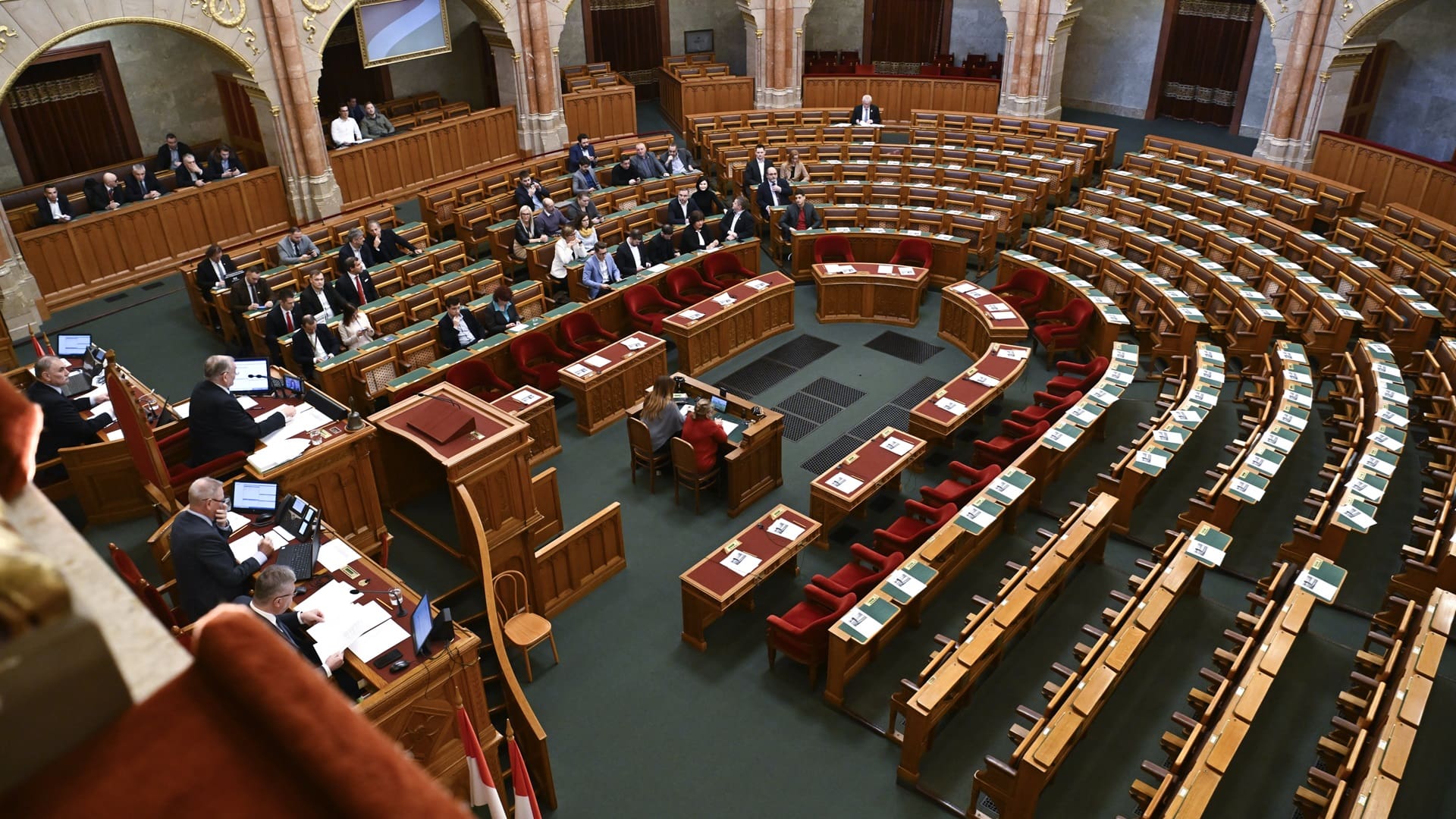House Speaker László Kövér called an extraordinary parliamentary session for Monday, 5 February. The left-wing opposition faction within the National Assembly has requested him to do so in an official letter, urging him to give the House the opportunity to vote on Sweden’s NATO accession before the planned parliamentary session in March.
The letter also called for two other issues to be on the agenda of the special session. One was a debate on euthanasia, a topic that made headlines with the case of Dániel Karsai, a lawyer who is suffering from ASL and is publicly fighting for legal euthanasia. The other was the proposed enhanced supervision of battery factories.
However, it was the vote on Sweden’s NATO accession that dominated the news headlines, both domestic and international.
The ratification has failed to pass the Hungarian National Assembly
after members of the ruling Fidesz-KDNP coalition did not show up for the special session.
However, some opposition MPs went absent as well.
Thus, there were not enough Members of Parliament present to make the vote outcome legally binding. The MPs had the chance to make public remarks before the vote. The final tally ended up being 43 votes for, seven against (the far-right Our Homeland Movement decided to say no), and one abstention.
Fidesz parliamentary group leader Máté Kocsis explained his party’s decision not to attend the session in a post on social media, writing:
‘Our official stance is that the Swedish ratification of NATO could take place early in the regular parliamentary session, but this will require a meeting between the two prime ministers in Budapest. If accession is important to the Swedes, they will come here, just as they went to Türkiye.’
Log in or sign up to view
See posts, photos and more on Facebook.
Prime Minister Ulf Kristersson of Sweden has previously stated that he would be willing to visit Budapest once parliament ratifies his country’s accession to NATO.
While the extraordinary session was taking place in the Budapest Parliament, members of the Orbán administration were attending an off-site cabinet meeting in Sopronbánfalva, a village in Western Hungary. Among the attendees was Minister of Foreign Affairs Péter Szijjártó, who held bilateral talks with his Estonian counterpart over the phone about the issue of Swedish NATO accession. According to the press release by the Foreign Ministry, Minister Szijjártó assured Foreign Minister Margus Tsahkna of Estonia that the Hungarian government’s disposition towards the matter remains ‘positive’.
Ambassador Pressman Is Disappointed
US Ambassador to Hungary David Pressman attended the special parliamentary session, alongside the ambassadors of other NATO Member States, and watched the vote take place from the Parliament gallery.
Upon the news of the extraordinary session being called, the US Embassy in Budapest praised the decision by House Speaker Kövér in a post on the social media platform X.
U.S. Embassy Budapest on Twitter: “U.S. Embassy Statement on the Extraordinary Session of the Hungarian Parliament on Monday, February 5, 2024 ▶️ https://t.co/DcLnjFnQlu pic.twitter.com/Dqfp9KUnlM / Twitter”
U.S. Embassy Statement on the Extraordinary Session of the Hungarian Parliament on Monday, February 5, 2024 ▶️ https://t.co/DcLnjFnQlu pic.twitter.com/Dqfp9KUnlM
However, evidently, the procedure did not play out the way Ambassador Pressman was hoping it would. A spokesperson for the US Embassy released a statement after the null and void vote in the Assembly, claiming that the United States is ‘disappointed’ by the fact that Sweden’s NATO membership is still yet to be ratified by the last standout Member State, Hungary.
Previously, the US has tried to apply pressure to get the Orbán administration to act on the matter. Back in June, Republican Senator James E. Risch from Idaho, a member of the Senate Foreign Relations Committee, vetoed a $735 million arms deal between the US and Hungary, citing the delay in the Swedish NATO accession as the reason. Earlier this month, the Chair of the Foreign Relations Committee, Senator Ben Cardin (D-Maryland) went as far as calling for sanctions against Hungary for a number of supposed infractions, which too included the refusal to approve Sweden as the new NATO member.
Related articles:








